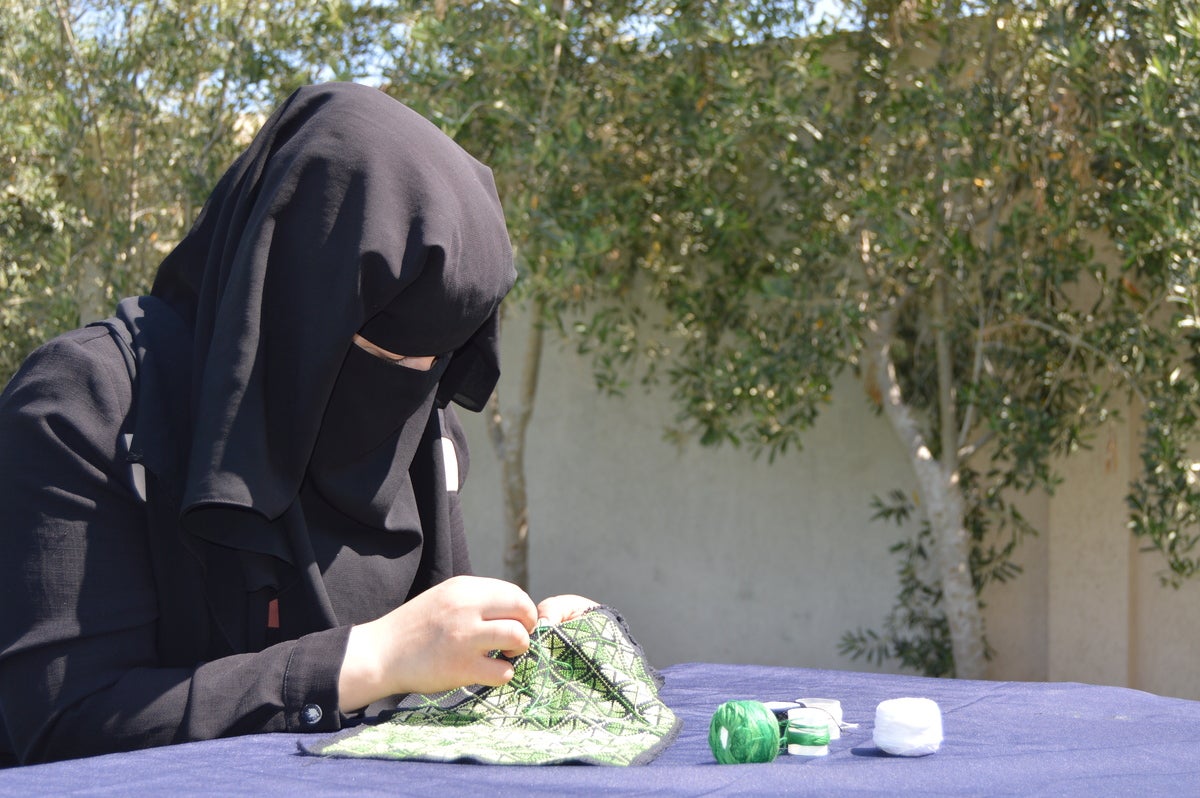In the words of Rehab Qtait: “I do not need people’s sympathy. I feel strong when I am teaching children.”
Date:

Rehab Qtait, 35, is a mother of five and lives with her family in Khan Younis, in the Gaza Strip. To make a living, Rehab has put her skills in sewing, embroidery work and crochet to good use. But her income does not cover her household needs. Through UN Women’s Cash for Work Programme, Rehab received training to acquire the skills and knowledge to be a kindergarten teacher. She loves kids and used to offer day care for children in her apartment. Following the training, she was given a temporary teaching job at a kindergarten where she took care of four-year-old children. Rehab is one of 330 women who have benefited from the Cash for Work Programme in Gaza and the West Bank. Generously funded by the Government of Japan, this programme offers economically vulnerable women income-generating opportunities coupled with vocational trainings, civic engagement, and protection services, a holistic approach aiming at empowering and helping women stand on their own feet.
“I have five children, two of them have medical conditions. My eldest son is visually impaired and my youngest was born with a heart defect and asthma. They both need regular treatments. My husband also suffers from cancer and is unable to work.
I am my family’s sole breadwinner, but I can hardly make ends meet. All my income is spent on their medication.
I was very lucky to get a short-term work opportunity as a kindergarten teacher. I really enjoy being with children, and I love teaching them the alphabet and painting, and singing songs with them.
The training that I received before I started the job gave me the opportunity to talk with new people and promote my embroidery products. I used to be an introvert, but now I feel more comfortable mingling with people. I met women facing far graver problems than mine, such as domestic violence. This has made me feel grateful for all the blessings I have, and has given me the patience and strength to deal with my unfortunate circumstances and support my family.
The training also improved my understanding of human rights including those of women. My husband got cancer due to his exposure to gas emissions in the factory where he used to work without insurance. Thanks for the training, I now know our rights according to Palestinian Labour Law and can help my husband reclaim his compensation.
This short work opportunity has allowed me to save up to purchase materials for my embroidery work to generate more income. I feel proud of my work. For me, embroidery is not only a source of income, but also a way to put aside my worries and focus on creating unique pieces.
People often look at my circumstances and feel sorry for me. But I don’t need their sympathy. I feel strong and capable, especially when I am teaching children. They see me as their role model, a source of power and inspiration.”